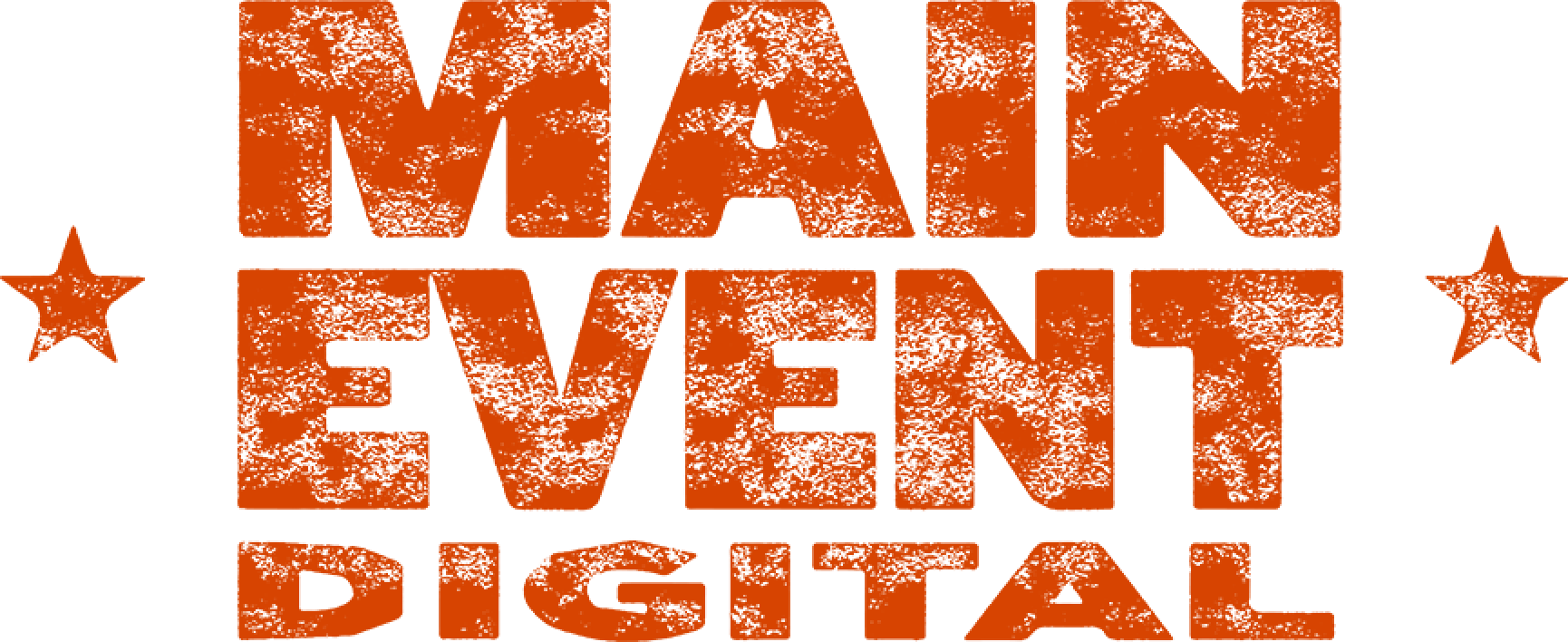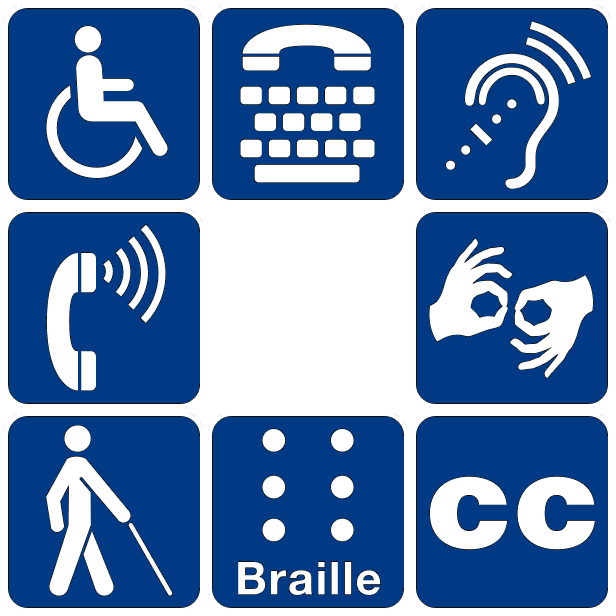July 13, 2021
MAIN EVENT DIGITAL FINISHES ADA CERTIFICATION, URGES OTHER COMPANIES TO DO THE SAME
It’s been five long years of costly litigation, but Domino’s has finally been found liable for violating the American Disabilities Act (ADA). The fallout from the federal court’s decision will be felt across the digital world, as it’s estimated that 98 percent of websites are not ADA compliant.
Domino’s represents perhaps the biggest corporation to date to receive a left hook from the courts due a lack of accessibility on their website. Just like Domino’s, Winn-Dixie was served with a lawsuit because the well-known grocery chain didn’t have a screen reader coded in its website, making the site inaccessible to vision-impaired customers.
It’s a lesson that CEO and founder of Chicago-based Main Event Digital, Mike Mayer, learned working with his previous employer.
“At my last company, we were sued by a vision-impaired individual for not being compliant,” said Mayer. “We had a five-figure settlement with this customer and had to get compliant quickly.”
Five-figure settlements are rare with violations of the ADA, as many states have laws capping settlements to four figures. But tell that to Domino’s, which must also pay the impressive cost of the plaintiff’s legal fees. The cost of litigation in this and the cases of Winn-Dixie and others has far out-weighed the cost of becoming compliant in the first place.
RISKS OF NON COMPLIANCE WITH THE ADA
First and foremost, companies that aren’t ADA compliant are adopting—albeit unwittingly in most cases—a non-inclusive posture toward people with disabilities. Alienating people with disabilities is costing companies with e-commerce sites big time. The cost we’re talking about is not from lawsuits, since 20 percent of the population has a disability. The cost is the loss of a customer base.
Of course, it’s not as though these companies are purposely turning their back on people with disabilities. Winn-Dixie actually won their lawsuit but went through an ADA compliance upgrade anyway.
A recent study by the National Law Review (NLR) outlines the problem for most companies, especially those who’ve gone digital recently without giving accessibility a thought. The NLR found that the majority of companies with a digital presence are vulnerable to lawsuits in violation of Web Content Accessibility Guidelines (WCAG, as a provision of the ADA), mainly out of ignorance.
“Many companies may simply be unaware of ADA compliance requirements for their retail websites, leading them to be caught unaware by these lawsuits.”
Awareness is typically the first step in solving a new problem, and while companies are taking action to become ADA compliant, they may not be freeing themselves from danger like they think.
COMPANIES ARE TAKING ADA COMPLIANCE INTO THEIR OWN HANDS, AT THEIR OWN RISK
The NLR, which titled its report, “ADA Website Litigation Continues to Proliferate in 2021,” wasn’t only a warning to companies, but also a suggestion for action: “The existence of these suits presents an opportunity for a company to update its website to be more accommodating to the visually impaired customer, while potentially reducing future exposure to these suits.”
Everybody wins, right?
Wrong.
Some companies are crossing their fingers and hoping that they don’t get served with a lawsuit, while others are taking matters into their own hands. The problem is that both launching a new website or retrofitting an existing one with accessibility requirements can cost thousands of dollars and could take weeks.
But that’s not actually the chief concern among companies who are going it alone in plugging accessibility software into their websites. WCAG compliance company accessiBe pointed out that, “Maintaining compliance means manual updates EVERY TIME new content is added to the site” (emphasis added).
That’s a lot of work and could require a full-time in-house employee, or time taken away from your Dev team. While this certainly affects your bottom line, companies who aren’t ADA compliant are missing out on what’s important.
THE IMPORTANCE OF BEING ADA COMPLIANT
Think about the three different basic ways people learn -- visual, auditory and kinesthetic. Since you won’t be boxing with your website any time soon, companies with a digital presence need to focus on the visual and the auditory.
“A website is not accessible because someone calls it so, or writes some code,” said accessiBe CVO Michael Hingson. “But rather it is accessible because the users of the site can experience it whether they happened to be persons with a disability or not.”
This thinking makes it easy to understand why implementing screen readers is of the utmost importance to make your website accessible to blind people. But if companies are truly embracing what makes websites really tick, which is optimization of course, then accessibility compliance is merely the beginning.
Main Event Digital, for example, just recently completed it’s ADA certification, but we didn’t stop there. Our Chicago-based digital marketing agency implemented a new tool in accessibility that leverages the power of artificial intelligence. Having already used core Key Performance Indicators (KPIs) to optimize the Main Event Digital website, we had accessiBe install their machine learning tool onto our site.
MAIN EVENT DIGITAL PARTNERS WITH accessiBe
The machine learning tool that is powered by AI is accessiBe’s contribution to the future of the digital world. accessiBe’s tool learns from the user experience of a person who accesses your company’s website how those with disabilities are navigating your site.
Website page views and average session duration as KPIs—Are people with disabilities
visiting multiple pages to learn more about your company?
Conversion rate and ROI as KPIs—If you have an e-commerce platform, is
the buying experience easy for people with disabilities?
Mayer already learned the importance of answering these questions the hard way at his last company. “We used accessiBe to get compliant quickly,” Mayer said, and he didn’t waste any time partnering with accessiBe when he opened up his new Chicago-based digital marketing company.
accessiBe’s machine learning tool is completely automated, and they boast that it only requires “just a single line of JavaScript” to install, making it easy to load into your new content.
So what’s your content?
If you need closed captioning for your company’s videos, closed captioning for people with a hearing impairment or dedicated image descriptions, accessiBe has the tools to make your content accessible to the 20 percent of the population that may otherwise be excluded.
That’s why Main Event Digital partnered with accessiBe to make their accessibility tools available to Main Event’s clients. Because of this partnership, companies who enlist Main Event Digital’s digital marketing and SEO services receive a 30% discount from accessiBe.
accessiBe tools won’t slow down your website or disrupt your content, but it will open your company’s digital front door to a part of the population that’s ready for inclusion. Optimized content that reaches as many people as possible is any digital marketing agency's goal, and Main Event Digital is proud that accessibility for people with disabilities is a big part of that aim.
Get the support you need to make your company’s website accessible, and become a champ in digital marketing. Get in the ring with Main Event Digital.



Share:
How to Sell Industrial Products Online
Pinterest Users are Highly Motivated to Buy Businesses' Products and Services